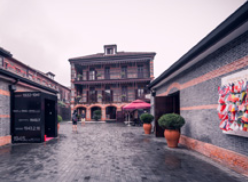
Mr. Ernest Glaser's memories of "Past in Shanghai"
This is the story of the people involved in "Shanghai Ghetto". "Survivor’s Talk-Ernest Glaser Album" was jointly launched recently by Shanghai Ark and the Museum of Jewish Heritage in New York.

The "Shanghai Jewish Refugee Relief and World Anti-Fascism" Seminar
On the morning of September 1, the "Shanghai Jewish Refugee Relief and World Anti-Fascism" seminar hosted by the Shanghai Jewish Refugees Museum, the Shanghai Research Society for Anti-Japanese War and World Anti-Fascist War and the Shanghai Institute for International Strategic Studies was held in Shanghai.
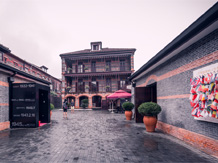
Speech by Consul General of Switzerland in Shanghai at the Opening Ceremony of the Exhibition “The Last Swiss Holocaust Survivors”
It is a great honour for me to welcome you to today’s opening of the exhibition The Last Swiss Holocaust Survivors at the Jewish Refugee Museum.

Shanghai Jewish Refugees Museum for Public Diplomacy in the New Era
Some of the exhibits are artistic creations and some are real objects. In whatever form, they consense the memories and feelings of several generations, and convey the righteous aspirations for peace of a great many people from different ethnic, national and cultural backgrounds.

Abstract of presentation
The SJRM is opening a new stage in the history of Chinese interest in Jews who lived in China. I will trace the growth of Chinese engagement with the refugees from the time thousands of them arrived in 1939 up to today.
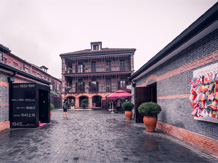
JEWS IN SHANGHAI | 26 Stories of Jewish Refugees in Shanghai during World War II
During the World War II,more than 30,000 Jews,under attack by the Nazis in Europe,fled to Shanghai,China and 16,000 of them took refuge in this city.

Pesah/Passover
The most important event at Pesah is the seder which is held at home on the first two nights of Pesah. People would eat a variety of symbolic foods and read Haggadah to review the history of how the ancient Israelites were freed from slavery in Egypt.。
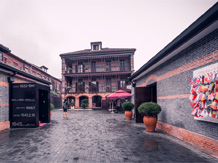
Rosh Hashanah
Rosh Hashanah is the Jewish New Year which originally referred to a holy memorial with the blowing of shofar (a trumpet made from a ram’s horn) in the Bible. Rosh Hashanah literally means “Head of the Year” in Hebrew and consists of several religious services: repent for wrongs, waiting for judgment and praying for a harvest. Rosh Hashanah is observed on the first two days of Tishrei. After sunset the next day at dusk, some Jewish services are performed. Main traditions in Rosh Hashanah include blowing shofar in a series of Judaism activities, enjoying a generous meal at home to mark the New Year. Repenting for one’s wrongs in the previous year is also part of the festival.Israelites usher in the first day in one year from Rosh Hashanah. Government press, newspapers and most radios choose to countdown “Jewish Time.” In fact, all kinds of celebrations are in full swing before Rosh Hashanah.。
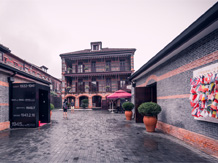
Hanukkah
Hanukkah, beginning on 25 Kislev (usually in December), commemorates the triumph of the Jews, under the Maccabees, over the Greek rulers (164 BCE) -- both the physical victory of the small Jewish nation against mighty Greece and the spiritual victory of the Jewish faith against the Hellenism of the Greeks.


